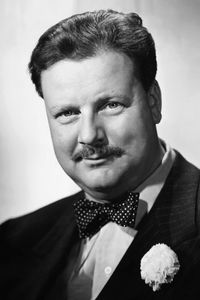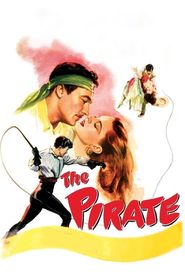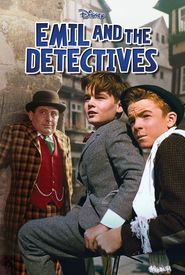Walter Slezak, a tall and portly Viennese character actor, pursued two distinct careers in America after arriving in 1930. One was as a star of musical comedy on stage, and the other was as a portrayer of villains, impish rogues, or pompous buffoons on screen.
Born in May 1902 in Vienna, Austria, to a musical family, Walter was the son of Elisabeth (Wertheim) and famous opera star Leo Slezak. He had Czech, Austrian, and Jewish ancestry. Walter studied medicine but lost interest and instead held a position in a bank. At 20, he was spotted by Hungarian actor/director Mihaly Kertesz (Michael Curtiz) in a beer garden and persuaded to appear in his motion picture Sodom and Gomorrah (1922).
Subsequently, the then lean Walter Slezak was signed by Ufa and became a matinee idol in German films of the 1920s. However, over the years, he put on so much weight that by the end of the decade, he was no longer considered bankable as a romantic star and became relegated to playing character roles instead.
In 1930, Slezak emigrated to the United States and instantly hit it off with the public and critics alike in his Broadway debut with the musical comedy 'Meet My Sister' (1930-31). He gained further plaudits for his role in the Oscar Hammerstein II production, 'Music in the Air' (1932-33),scored by Jerome Kern. By the 1950s, Slezak had become an established name on Broadway, starring in shows like 'My 3 Angels' (1953-54),'The Gazebo' (1958-59),and 'Fanny' (1954-56),for which he won the 1955 Tony Award as Best Actor in a Musical.
In motion pictures, Slezak's career took a different path. He started in films in 1942 and just two years later, walked away with most of the acting honours for Alfred Hitchcock's claustrophobic thriller Lifeboat (1944). He gave a compelling performance as the callous, methodical Nazi captain, who gradually assumes command of the vessel containing the survivors of the passenger ship torpedoed and sunk by his U-boat.
After 'Lifeboat', Slezak appeared in a variety of lavish and colourful costume spectaculars, including The Princess and the Pirate (1944),The Spanish Main (1945),The Pirate (1948),Sinbad, the Sailor (1947),Born to Kill (1947),and The Inspector General (1949). He was also memorably evil as Sinbad's treacherous barber Melik in Sinbad, the Sailor (1947),the corrupt gumshoe Arnett in Robert Wise's gangster melodrama Born to Kill (1947),and as the scheming medicine-show man in The Inspector General (1949).
In his private life, Walter Slezak was known as an experienced pilot, a connoisseur of art, lover of chess and good books. His long career as one of the outstanding character players of his time ended with his retirement in 1980. Despondent over a series of debilitating medical problems, Slezak took his own life in April 1983.






























































